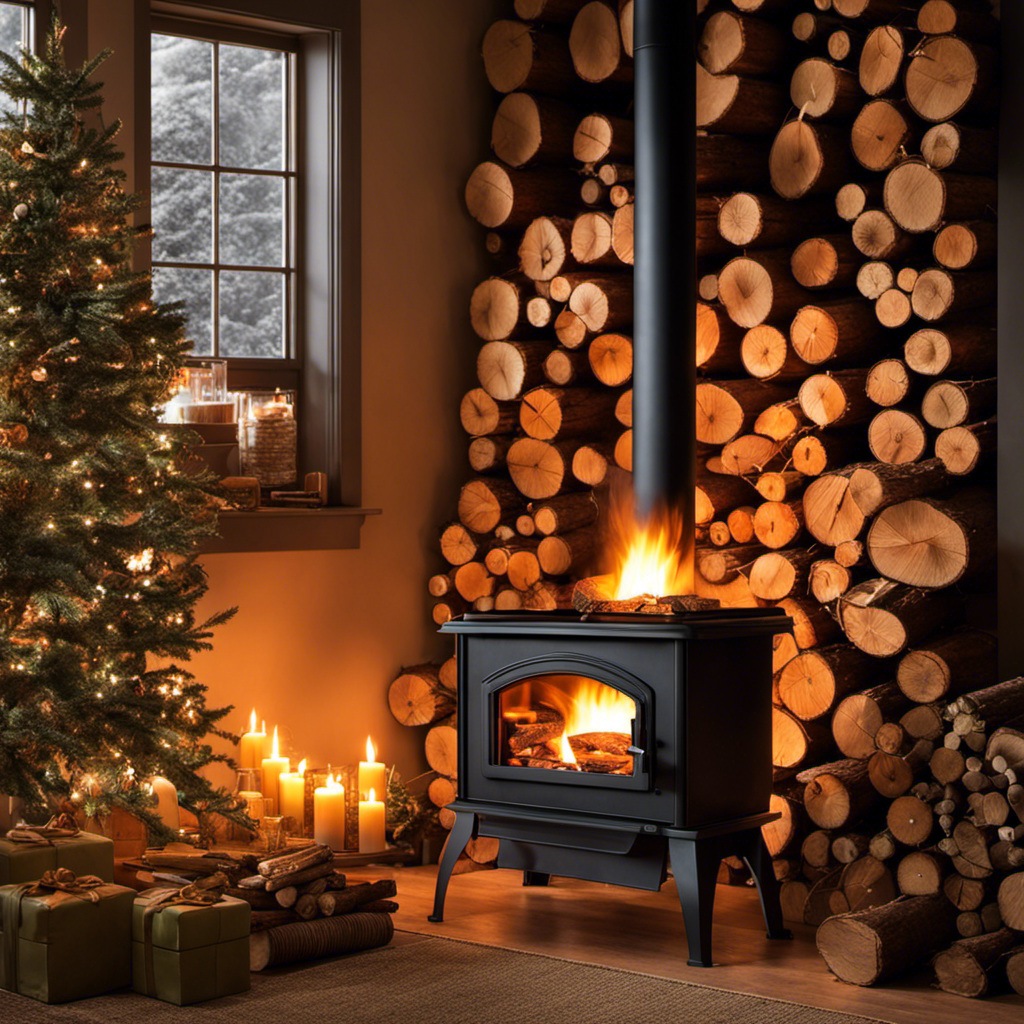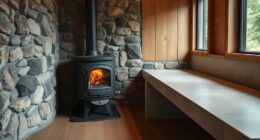I have found an easy technique for getting rid of tough creosote on wood stove glass. It’s a total game-changer, and you’ll be amazed at how simple it is.
Say goodbye to scrubbing and hello to crystal-clear glass. In this article, I’ll reveal the tried and tested methods that work like magic.
From traditional cleaning techniques to vinegar and water solutions, baking soda pastes, and even commercial creosote removers, I’ll guide you step by step on how to restore your wood stove glass to its original shine.
Key Takeaways
- Vinegar and water solution, as well as baking soda paste, are effective and natural cleaners for removing creosote stains from wood stove glass.
- Traditional cleaning methods using vinegar, lemon juice, and steam can also be used to break down and remove stubborn creosote buildup.
- Commercial creosote removers may contain harsh chemicals, but DIY methods using vinegar and water are safe and effective alternatives.
- Preventative measures such as burning dry and seasoned firewood, ensuring proper airflow, regular chimney cleaning, and monitoring stove temperature can help minimize creosote formation and buildup.
Traditional Cleaning Methods
I’ve always relied on traditional cleaning methods to tackle tough stains like creosote on wood stove glass. When it comes to finding alternatives to lemon juice, I’ve found that vinegar works wonders. Its high acidity helps break down the greasy residue left by creosote, making it easier to clean.
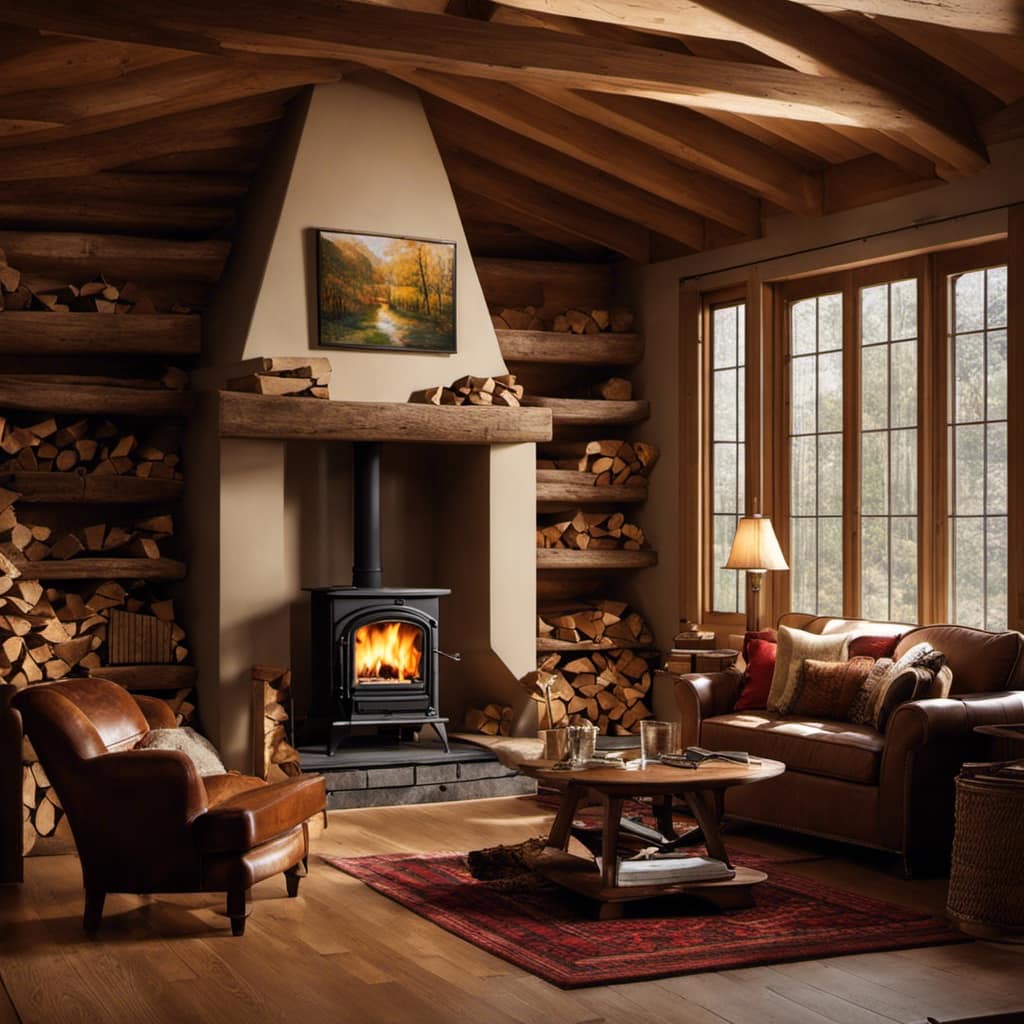
Additionally, steam cleaning options have proven to be effective in removing creosote stains. The high temperatures generated by steam can loosen and dissolve the stubborn buildup, allowing for a more thorough cleaning. It’s important to note that when using steam, caution must be exercised to avoid damaging the glass.
Overall, traditional cleaning methods, such as vinegar and steam cleaning, offer reliable solutions for removing creosote from wood stove glass.
Vinegar and Water Solution
Sometimes, I use a vinegar and water solution to clean tough stains like creosote off of wood stove glass. This method is effective and safe, as vinegar is a natural cleaner that’s gentle on glass surfaces. To create the solution, I mix equal parts white vinegar and water in a spray bottle.
I spray the solution onto the stained glass and let it sit for a few minutes to loosen the creosote. Then, using a soft cloth or sponge, I gently scrub the glass in circular motions. For stubborn stains, I may repeat the process.
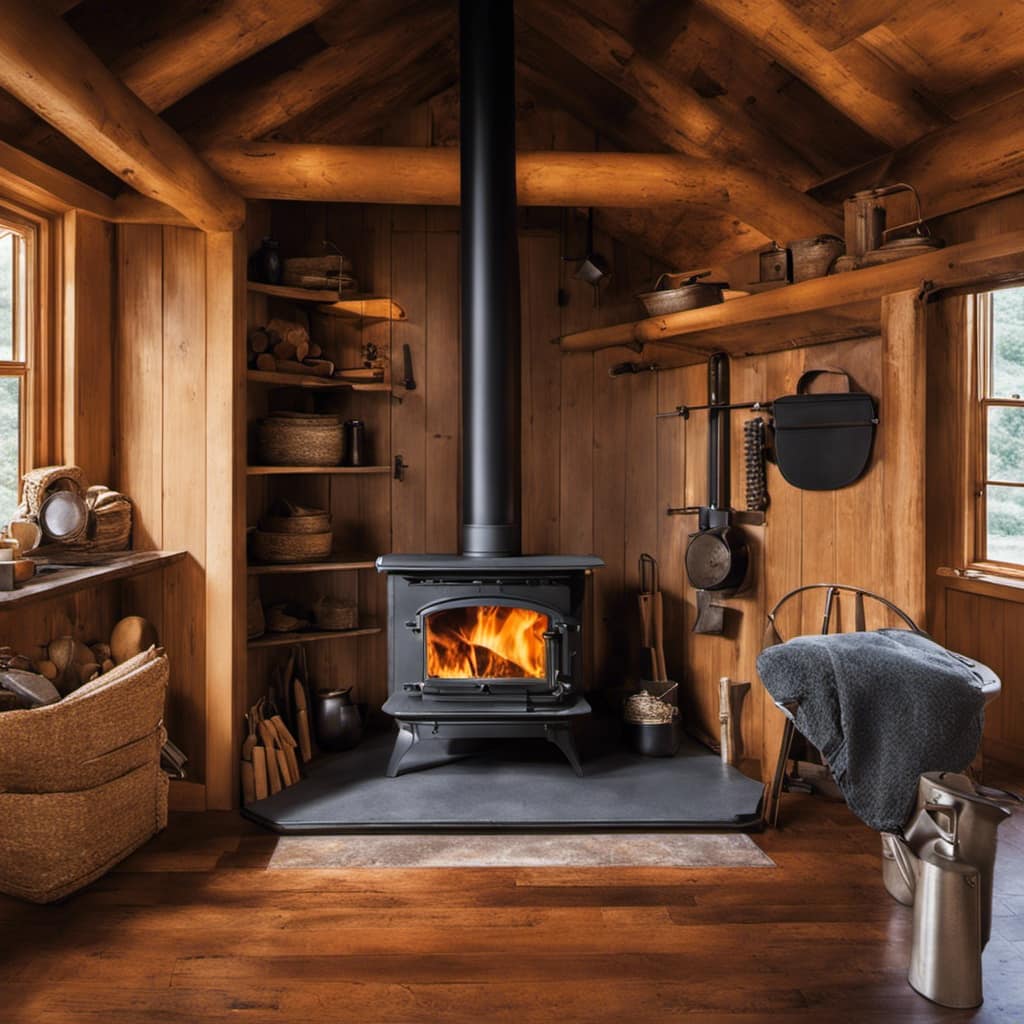
An alternative to vinegar is lemon juice, which also contains acidic properties that can dissolve creosote. However, it’s important to avoid using abrasive materials that can scratch the glass.
In the next section, I’ll discuss another effective method – the steam cleaning method.
Baking Soda Paste
To clean tough stains like creosote off of wood stove glass, I mix baking soda with water to create a paste and gently scrub the glass in circular motions. This method is an effective alternative to using harsh chemicals and provides a natural remedy for removing stubborn creosote buildup.
Here are four reasons why baking soda paste is a great option for cleaning wood stove glass:
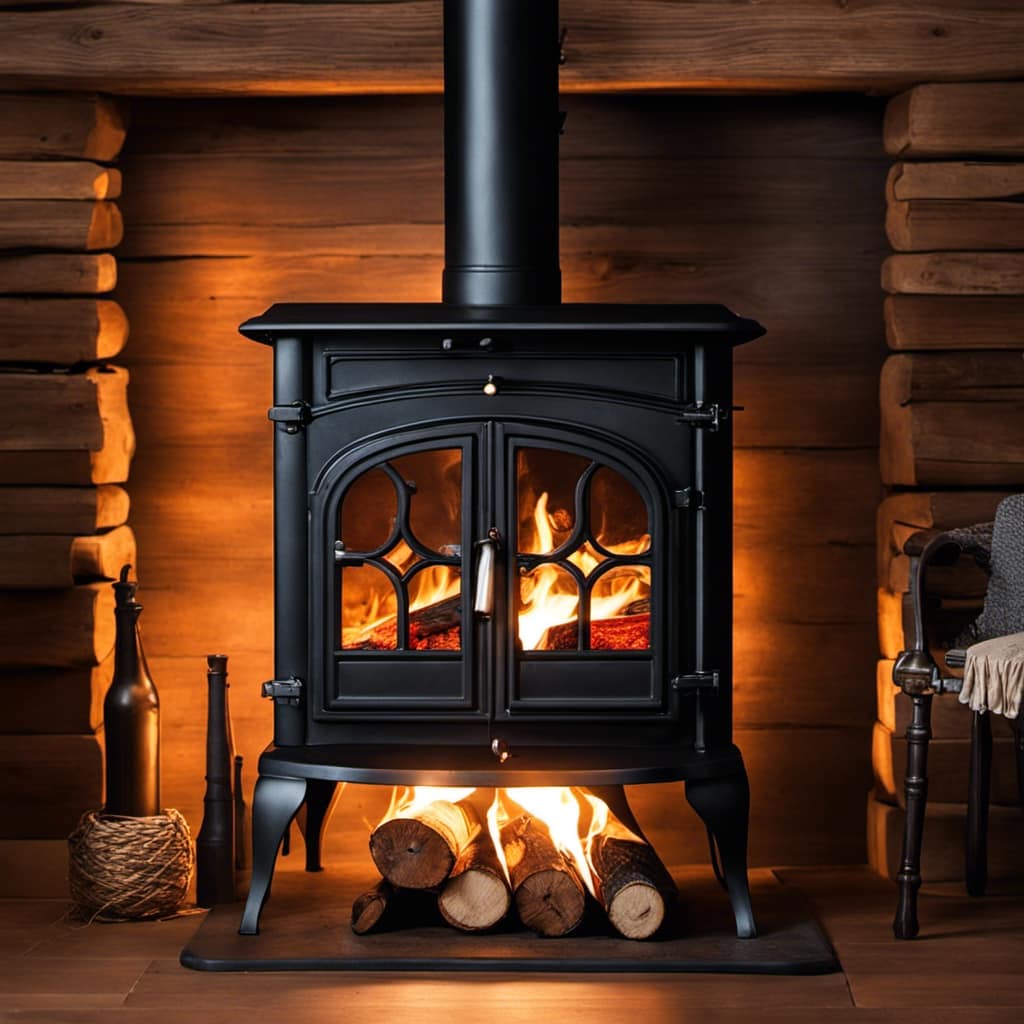
-
Non-toxic: Baking soda is a safe and environmentally friendly cleaning agent, making it an ideal choice for those who prefer natural remedies.
-
Abrasive properties: The mild abrasiveness of baking soda helps to break down and remove tough creosote stains without scratching the glass surface.
-
Neutralizes odors: Baking soda has the added benefit of neutralizing unpleasant odors, leaving your wood stove glass not only clean but also fresh-smelling.
-
Versatile: Baking soda is a versatile ingredient that can be used for various cleaning purposes around the house, making it a cost-effective solution.
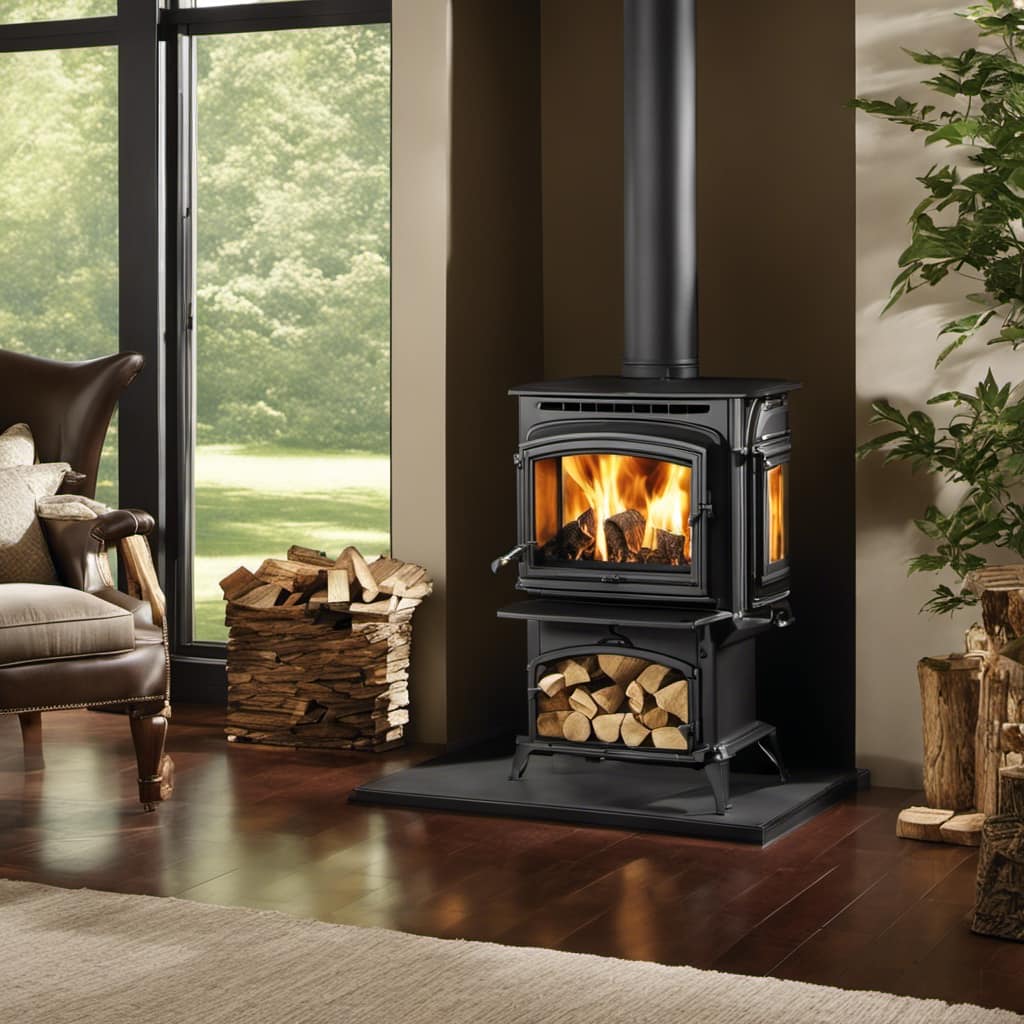
Commercial Creosote Removers
Unfortunately, I rarely use commercial creosote removers because they tend to contain harsh chemicals that I prefer to avoid. Instead, I opt for DIY creosote removal techniques or professional chimney cleaning services.
When it comes to DIY methods, one effective technique is using a mixture of vinegar and water. This solution can be sprayed onto the creosote buildup and left to sit for a few minutes before wiping it away.
Another option is using a creosote sweeping log, which can help break down the creosote and reduce its buildup.
However, it’s important to note that these DIY methods may not be as effective as professional chimney cleaning services. Professionals have the knowledge, experience, and specialized tools to thoroughly remove creosote buildup, ensuring the safety and efficiency of your wood stove.

Preventative Measures for Minimizing Creosote Buildup
I regularly clean my wood stove and chimney to prevent creosote buildup and ensure its optimal performance. Proper ventilation is crucial for wood stoves to function efficiently and safely. Here are four key practices for minimizing creosote buildup:
-
Burn dry and seasoned firewood: Moisture in wood leads to incomplete combustion and increased creosote production. Using well-seasoned wood with a moisture content below 20% will reduce creosote formation.
-
Maintain proper airflow: Adequate air supply is essential for efficient combustion and reducing creosote buildup. Ensure that the air vents are open and not blocked by ash or debris.
-
Regular chimney cleaning: Cleaning the chimney at least once a year is crucial to remove any creosote deposits that may have accumulated. A clean chimney allows for proper airflow and minimizes the risk of chimney fires.
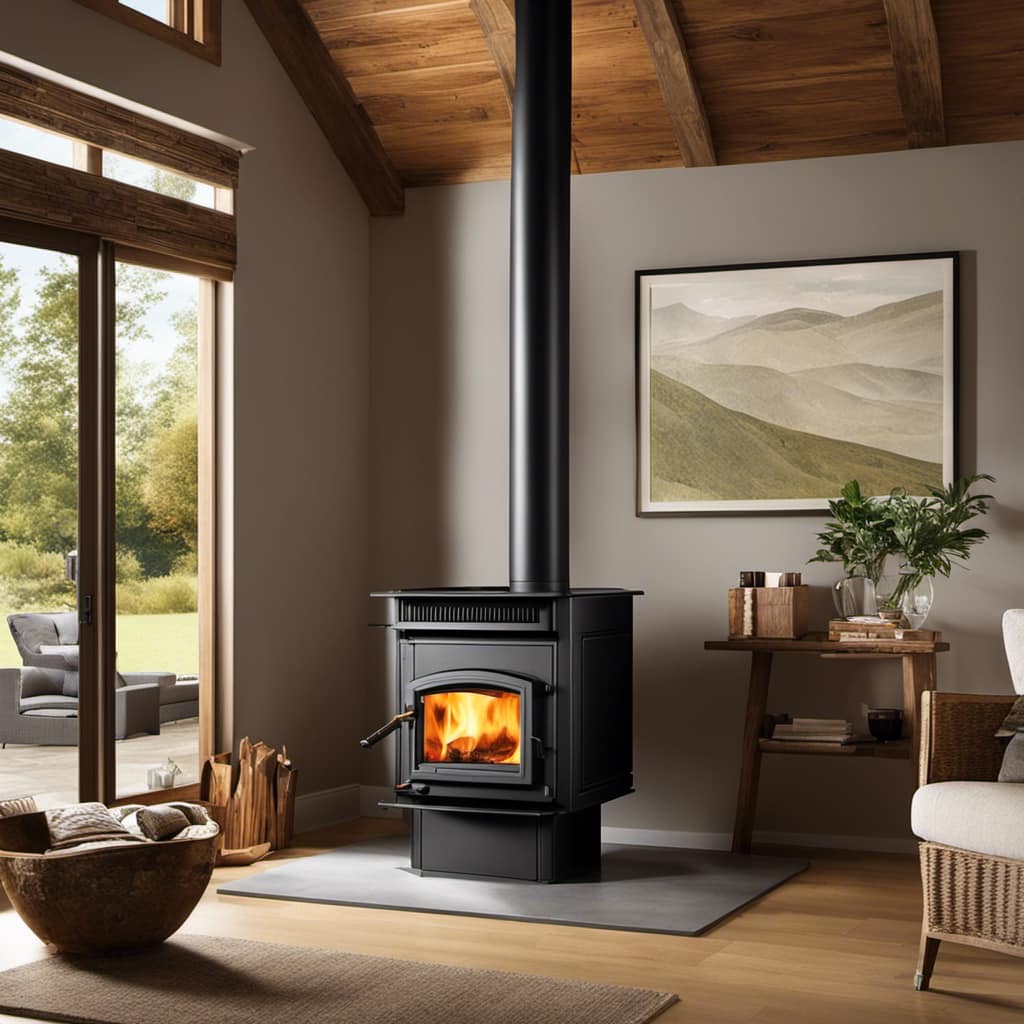
-
Monitor stove temperature: Operating the wood stove at the recommended temperature range helps to achieve complete combustion and reduce creosote formation. Using a stove thermometer can assist in maintaining the optimal temperature.
Frequently Asked Questions
Can I Use Regular Glass Cleaner to Clean Creosote off of Wood Stove Glass?
Regular glass cleaner is not effective for removing creosote off of wood stove glass. However, vinegar can be used as an alternative to commercial creosote removers. Another option is using newspaper, which can be surprisingly effective.
How Often Should I Clean the Glass on My Wood Stove to Prevent Creosote Buildup?
I clean the glass on my wood stove every month to prevent creosote buildup. It’s important to use a specialized cleaner designed for wood stoves. Certain types of wood, like hardwoods, produce less creosote buildup.
Are There Any Natural Alternatives to Commercial Creosote Removers?
I’ve experimented with natural alternatives to commercial creosote removers, and vinegar has proven quite effective for cleaning creosote off wood stove glass. It’s a game-changer in the battle against stubborn buildup.
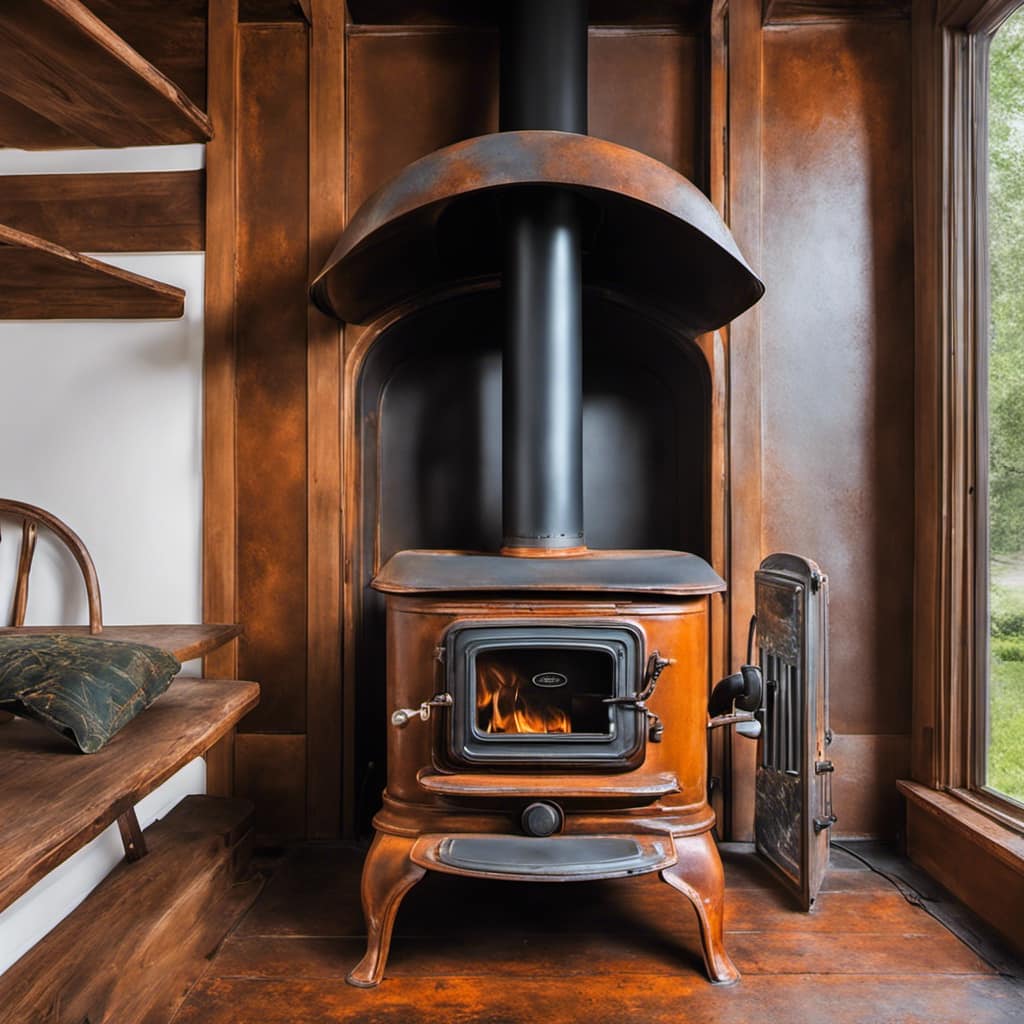
Can I Use a Razor Blade to Scrape off Creosote From the Glass?
Using a razor blade to scrape off creosote from wood stove glass can be effective but requires caution to avoid scratching the surface. Alternative methods for cleaning include using vinegar or a commercial glass cleaner specifically designed for removing creosote.
Are There Any Specific Types of Wood That Produce Less Creosote Buildup in Wood Stoves?
Certain types of wood produce less creosote buildup in wood stoves, helping to reduce maintenance. To minimize creosote, opt for hardwoods like oak or maple, which burn cleaner and leave less residue.
Conclusion
After exploring various cleaning methods, it’s clear that removing creosote from wood stove glass requires a combination of knowledge, technique, and precision.
Traditional methods may be effective, but why settle for the mundane? Embrace the power of vinegar and water or the wonders of a baking soda paste.
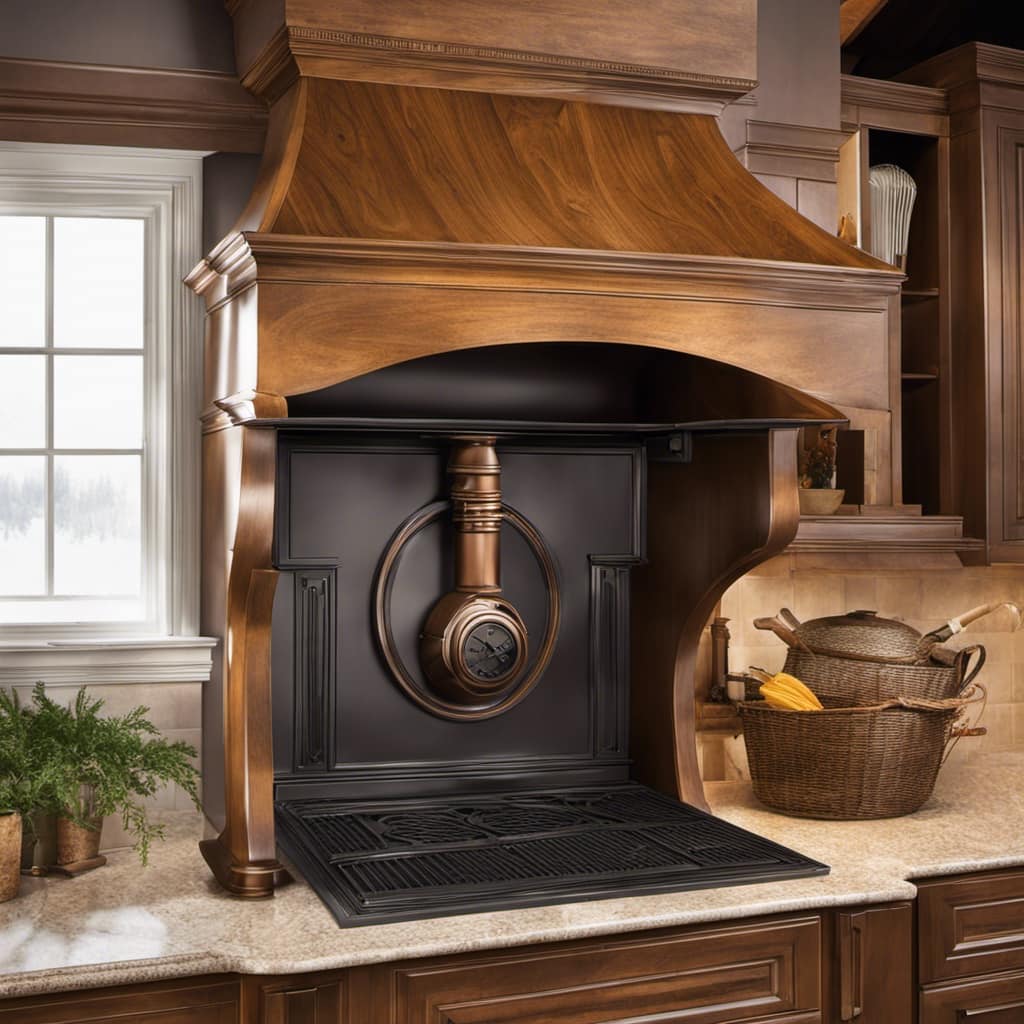
If all else fails, turn to commercial creosote removers.
Remember, prevention is key, so take measures to minimize creosote buildup.
Stay informed, stay clean, and let your wood stove glass shine like never before.



